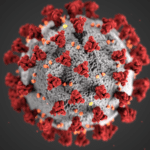Regular exercise has long been recognized as a key component of a healthy lifestyle, promoting cardiovascular fitness, weight management, and mental well-being. However, emerging research suggests that exercise also plays a crucial role in maintaining a healthy gut. The gut, often referred to as the "second brain," is responsible for the digestion and absorption of nutrients, as well as maintaining overall immune function. In this article, we delve into the fascinating connection between exercise and gut health, exploring the mechanisms through which physical activity positively impacts the gut.
1. Enhanced Digestive Motility
Regular physical activity has been shown to stimulate digestive motility, improve bowel movements, and reduce the risk of constipation. Exercise helps to increase muscular contractions in the intestines, promoting the movement of food through the digestive system. This enhanced motility not only aids in the timely elimination of waste but also contributes to the prevention of conditions such as irritable bowel syndrome (IBS) and diverticulosis.
2. Improved Gut Microbiota Diversity
The gut microbiota, a vast community of microorganisms residing in the gastrointestinal tract, plays a vital role in maintaining gut health and overall well-being. Studies have revealed that exercise positively influences gut microbiota diversity, resulting in a more balanced microbial composition. Regular physical activity is associated with an increase in beneficial bacteria, such as Bifidobacterium and Akkermansia, while reducing the abundance of harmful bacteria like Clostridium difficile. This balanced gut microbiota is crucial for optimal digestion, nutrient absorption, and immune system regulation.
3. Enhanced Intestinal Barrier Function
The gut lining serves as a protective barrier, preventing harmful substances from entering the bloodstream while allowing the absorption of essential nutrients. Regular exercise has been shown to enhance the integrity of the intestinal barrier, reducing the risk of intestinal permeability or "leaky gut syndrome." Exercise-induced improvements in the intestinal barrier function help to prevent the translocation of bacteria and toxins from the gut into the bloodstream, thereby reducing inflammation and supporting overall gut health.
4. Regulation of Gut Hormones
Exercise exerts a profound influence on the secretion and regulation of various gut hormones, including ghrelin, leptin, and peptide YY. Ghrelin, known as the "hunger hormone," is responsible for stimulating appetite, while leptin, known as the "satiety hormone," signals the brain to reduce food intake. Regular exercise helps to balance the secretion of these hormones, promoting a healthy appetite and reducing the risk of overeating or undereating. Additionally, exercise-induced release of peptide YY contributes to increased feelings of fullness and satiety.
5. Reduced Inflammation
Chronic inflammation in the gut is associated with various gastrointestinal disorders, including inflammatory bowel disease (IBD) and Crohn's disease. Regular exercise has been found to reduce systemic inflammation throughout the body, including the gut. Exercise helps to modulate the production of pro-inflammatory cytokines while promoting the release of anti-inflammatory cytokines. By reducing gut inflammation, exercise aids in the prevention and management of gut-related disorders, improving overall gut health.
Conclusion
Incorporating regular exercise into your daily routine not only benefits your physical fitness and mental well-being but also plays a significant role in maintaining a healthy gut. From promoting digestive motility and enhancing gut microbiota diversity to improving intestinal barrier function and regulating gut hormones, exercise positively influences various aspects of gut health. By understanding the connection between exercise and the gut, individuals can make informed choices to optimize their overall well-being. So, lace up your sneakers, hit the gym, or go for a brisk walk—your gut will thank you for it!




